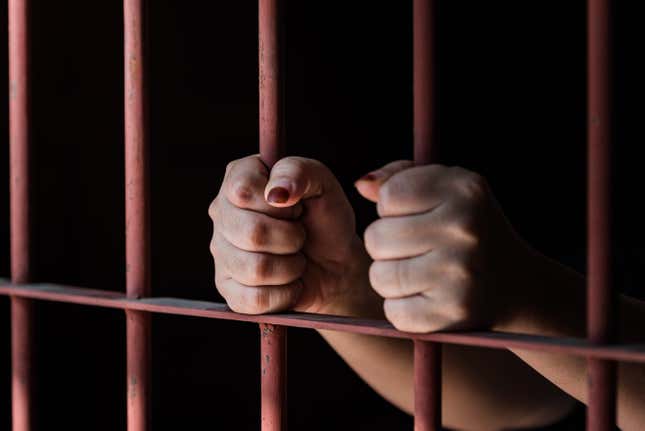
Belly of the Beast, a powerful documentary film about the human rights abuses experienced by women at the hands of the criminal justice system, will premiere on Thursday during the Human Rights Watch Film Festival at 6:30 p.m. ET. A Q&A with the filmmakers is set to take place at 8:00 p.m. ET, and those who are interested can watch here.
The film’s Peabody Award-winning director Erika Cohn says the film is necessary to highlight the injustices faced by women who are incarcerated, such as “profound lack of resources, attention and interest” in their stories.
“Additionally, the immense dehumanization and fear of retaliation often inhibits incarcerated people’s voices from being heard, further marginalizing an already ‘near-invisible population,” she says in a statement.
The film features the Central California Women’s Facility, the world’s largest women’s prison. Due to the inconspicuous rural area where the facility is located, reproductive and human rights violations transpiring inside its walls go largely unnoticed. In order to uncover these wrongdoings, a woman “who was involuntarily sterilized at the facility, teams up with a radical lawyer” to bring awareness to the issue and stop the violations through investigations into crimes against women—primarily, women of color.
“Together, with a team of tenacious heroines, both in and out of prison, they take to the courtroom to fight for reparations. But no one believes them,” the synopsis reads. “As additional damning evidence is uncovered by the Center for Investigative Reporting, a media frenzy and series of hearings provide hope for some semblance of justice. Yet, doctors and prison officials contend that the procedures were in each person’s best interest and of an overall social benefit.”
“The silence on imprisonment of women echoes the deafening silence on the disappearance and death of women, girls and transgender people of color,” Cynthia Chandler, a prison abolitionist and attorney featured in the film, explains. “The invisibility of people in women’s prisons is emblematic of a lack of value placed on the health and well-being of women and transgender people of color and impoverished people of all races.”

